Discover the Women of the Hall
These are the Inductees of the National Women’s Hall of Fame. Select any of the women to discover their stories and learn how they have influenced other women and this country.
 Eleanor Roosevelt
Humanities
1884
1973
Eleanor Roosevelt
Humanities
1884
1973

Eleanor Roosevelt
Trailblazing First Lady and wife of President Franklin Roosevelt. She spent her adult years working in politics and social reform. Her warmth and compassion inspired the nation, and she later became U.S. Delegate to the United Nations. The U.N. Declaration of Human Rights was largely her work, and she chaired the first-ever Presidential Commission on the Status of Women (1961).
 Elizabeth Cady Stanton
Humanities
1815
New York
1973
Elizabeth Cady Stanton
Humanities
1815
New York
1973

Elizabeth Cady Stanton
Suffragist and reformer. Stanton noticed from her earliest years that women were not treated equally with men. In 1848, she and others convened the first Women’s Rights Convention in Seneca Falls, New York, bringing 300 individuals together, including Frederick Douglass. Stanton determined that the right to vote was the key to women’s equality. Throughout her life and partnership with Susan B. Anthony, she wrote and argued brilliantly for women’s equality through the right to vote.
 Jane Addams
Humanities
1860
Illinois
1973
Jane Addams
Humanities
1860
Illinois
1973

Jane Addams
Social reformer and peace activist who created Hull House in the slums of Chicago, starting an American settlement house movement to provide help for the poor. A lifelong activist, Addams fought child labor, infant mortality and dangerous workplaces. Founder of the Women’s International League for Peace and Freedom, she won the Nobel Prize for Peace in 1931.
 Susan B. Anthony
Humanities
1820
Massachusetts
1973
Susan B. Anthony
Humanities
1820
Massachusetts
1973

Susan B. Anthony
The women’s movement’s most powerful organizer whose lifetime of dedication, and work with Elizabeth Cady Stanton, paved the way for women’s right to vote. Her words “Men their rights and nothing more; women their rights and nothing less,” expressed the ongoing struggle for equality.
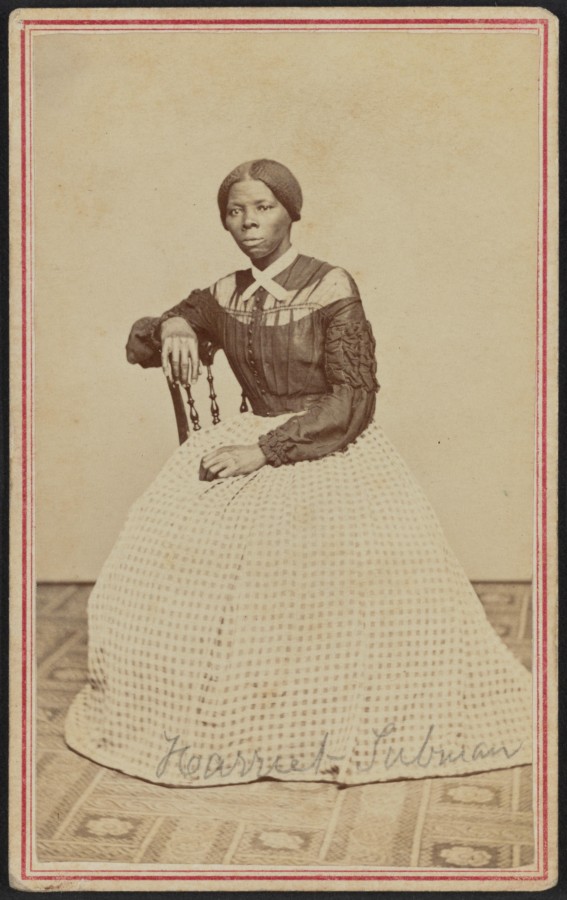 Harriet Tubman
Humanities
c.1820
Maryland
1973
Harriet Tubman
Humanities
c.1820
Maryland
1973

Harriet Tubman
Abolitionist born a slave in Maryland. Fleeing north to freedom, Tubman joined the Underground Railroad as a “conductor” who led people through the lines to freedom. Credited with saving more that 300 people from slavery, she became known as “Moses.” During the Civil War, Tubman organized former slaves into scouts and spy patrols, and after the war worked to help needy African Americans.
 Abigail Adams
Humanities
1744
Massachusetts
1976
Abigail Adams
Humanities
1744
Massachusetts
1976

Abigail Adams
Influential letter writer who urged her husband, President John Adams to “Remember the Ladies” and permit women to legally own property. She identified this major obstacle to women’s equality, which was overcome years later.
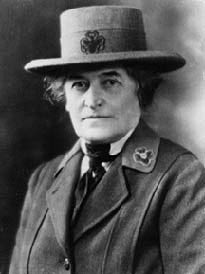 Juliette Gordon Low
Humanities
1860
Georgia
1979
Juliette Gordon Low
Humanities
1860
Georgia
1979

Juliette Gordon Low
As a tireless champion of young girls, Juliette Gordon Low founded the Girl Scouts of the USA (1912). Today, there are more than 3 million girl and adult members of the Girl Scouts of the USA.
 Dorothea Dix
Humanities
1802
Maine
1979
Dorothea Dix
Humanities
1802
Maine
1979

Dorothea Dix
One of the nation’s earliest and most effective advocates for better care of the mentally ill. When Dix saw that such people were badly treated in institutions, she lobbied nationwide for humane treatment and reform.
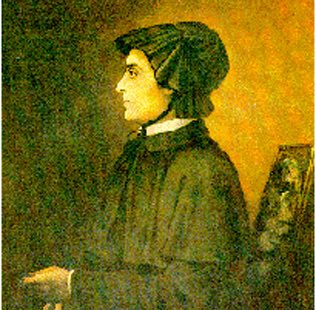 Elizabeth Bayley Seton
Humanities
1774
1979
Elizabeth Bayley Seton
Humanities
1774
1979

Elizabeth Bayley Seton
The first native-born American woman to be canonized a saint by the Roman Catholic Church. After raising a family, “Mother Seton” became a Sister of Charity and worked as an educator and leader of the order. She was known for her extraordinary virtue and kindness, and incidents of miraculous healing are attributed to her.
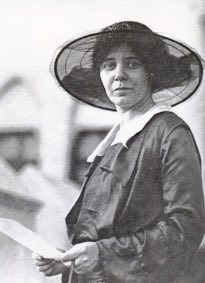 Alice Paul
Humanities
1885
1979
Alice Paul
Humanities
1885
1979

Alice Paul
Social reformer. Reared a Quaker, Paul found most of the women’s suffrage movement too slow and passive. After earning a Ph.D. from the University of Pennsylvania in 1912, she campaigned aggressively for women’s suffrage, using picketing and demonstrations to draw attention to the issue. Paul founded the women’s party, which demanded passage of the Equal Rights Amendment.
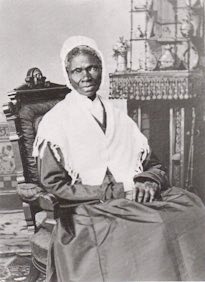 Sojourner Truth
Humanities
c.1797
New York
1981
Sojourner Truth
Humanities
c.1797
New York
1981

Sojourner Truth
Abolitionist born a slave who became a Quaker missionary. Truth eventually became a traveling preacher of great influence who worked in the antislavery movement. She learned about women’s rights, and adopted that cause as well. She went on to counsel and help newly freed African Americans.
 Margaret Sanger
Humanities
1879
1981
Margaret Sanger
Humanities
1879
1981

Margaret Sanger
Nurse and social reformer. After seeing many poor women in New York City damaged and dying from attempts to end unwanted pregnancies, she fought for reform. Sanger underwent arrests and imprisonment for distributing information on birth control and contraception.
 Carrie Chapman Catt
Humanities
1859
Wisconsin
1982
Carrie Chapman Catt
Humanities
1859
Wisconsin
1982

Carrie Chapman Catt
Tenacious women’s suffrage organizer whose efforts at the helm of the National American Women Suffrage Association put forth the “winning plan” that led to state-by-state enactments of suffrage and the final victory in 1920.
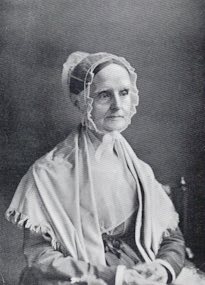 Lucretia Mott
Humanities
1793
1983
Lucretia Mott
Humanities
1793
1983

Lucretia Mott
Quaker anti-slavery advocate, who, after meeting Elizabeth Cady Stanton, became a leader in the women’s rights movement. Mott was a planner of the first Women’s Rights Convention in Seneca Falls in 1848, and she remained true to her sense of justice for African Americans and women throughout her life.
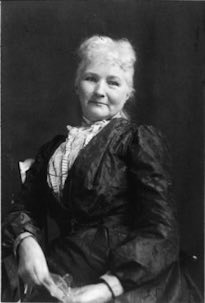 Mary "Mother" Harris Jones
Humanities
1837
Ireland
1984
Mary "Mother" Harris Jones
Humanities
1837
Ireland
1984

Mary "Mother" Harris Jones
Labor organizer and agitator who was a major figure in the American labor movement. For decades, Jones spoke out and organized for social justice for workers. She worked on behalf of the United Mine Workers and other groups.
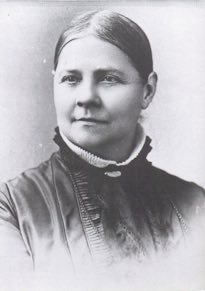 Lucy Stone
Humanities
1818
Massachusetts
1986
Lucy Stone
Humanities
1818
Massachusetts
1986

Lucy Stone
Early suffrage leader who began as an anti-slavery public advocate, followed by a lifetime of work for women’s right to vote. Stone was a sophisticated political tactician and founded The Women’s Journal, a fascinating archive of women’s history published from 1870 to 1893.
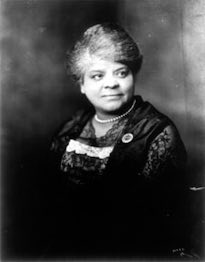 Ida B. Wells-Barnett
Arts, Humanities
1862
Mississippi
1988
Ida B. Wells-Barnett
Arts, Humanities
1862
Mississippi
1988

Ida B. Wells-Barnett
African American leader, anti-lynching crusader, journalist, lecturer and community organizer who fought social injustice all her life. Wells-Barnett sued a railroad over segregated seating, criticized segregated education and became editor and part owner of a newspaper. The horrors of lynching inspired her to lead a major effort to abolish the atrocity.
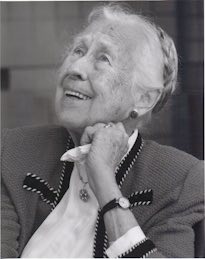 Esther Peterson
Humanities
1906
Utah
1993
Esther Peterson
Humanities
1906
Utah
1993

Esther Peterson
Catalyst for change in the labor, women’s and consumer movements. The driving force behind President Kennedy’s creation of the first Presidential Commission on Women in 1962, Peterson headed the Women’s Bureau in the Department of Labor. She also served Presidents Johnson and Carter, and served at the United Nations under President Clinton.
 Marian Wright Edelman
Humanities
1939
South Carolina
1993
Marian Wright Edelman
Humanities
1939
South Carolina
1993

Marian Wright Edelman
Attorney and civil rights advocate who founded the Children’s Defense Fund, the nation’s strongest advocacy group for children. A passionate champion for youth, Edelman’s organization works on health care and assistance for homeless children.
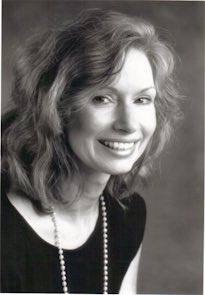 Gloria Yerkovich
Humanities
1942
Unknown
1993
Gloria Yerkovich
Humanities
1942
Unknown
1993

Gloria Yerkovich
Founder of CHILDFIND, a nationwide organization which helps locate missing children. Yerkovich developed the program after her own daughter was abducted. Her concept was the prototype for the National Center for Missing and Exploited Children.
 Betty Friedan
Humanities
1921
Illinois
1993
Betty Friedan
Humanities
1921
Illinois
1993

Betty Friedan
Reshaped American attitudes toward women’s lives and rights through decades of social activism, strategic thinking and powerful writing. Her book The Feminine Mystique (1963) triggered the contemporary women’s movement. Her latest work is the best-selling The Fountain of Age.
 Gloria Steinem
Humanities
1934
Ohio
1993
Gloria Steinem
Humanities
1934
Ohio
1993

Gloria Steinem
Feminist leader, writer and social activist. A founder of Ms. Magazine, Steinem also co-convened the National Women’s Political Caucus and helped create the Ms. Foundation for Women. A best-selling author, her latest works are Revolution from Within: A Book of Self Esteem for Women and Moving Beyond Words.
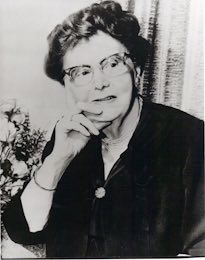 Ethel Percy Andrus
Humanities
1884
California
1993
Ethel Percy Andrus
Humanities
1884
California
1993

Ethel Percy Andrus
Founded the American Association of Retired Persons (AARP) to help older Americans cope effectively in their later years. Her organization, now 36 million members strong and a political lobbying force, helps with health insurance, career assistance and discounts for senior citizens.
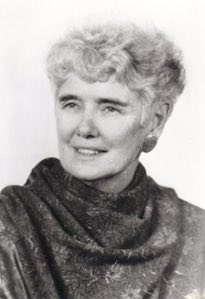 Elaine Roulet
Humanities
1930
1993
Elaine Roulet
Humanities
1930
1993

Elaine Roulet
Crusader for some of society’s most sharply disadvantaged, children of women in prison. A Sister of St. Joseph, Roulet has created many social reform and welfare organizations. She is best known for her work at the Bedford Hills Correction Center in New York, where she enabled mothers in prison to keep their babies for a year, a program now being patterned nationwide.
